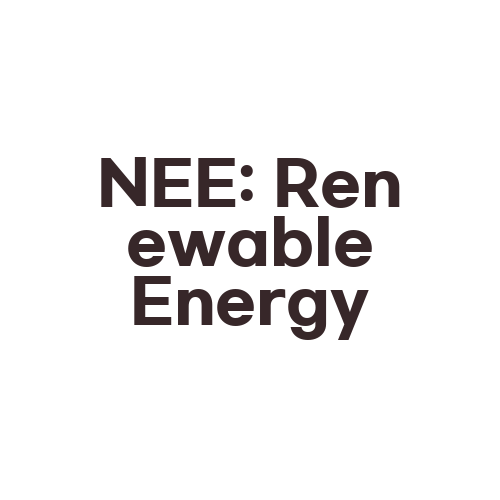NEE: Renewable Energy

Understanding NEE: Renewable Energy Explained
- Sustainable Energy Explained
- Benefits of Renewable Energy Sources
- Types of Renewable Energy
- NEE: A Reliable Site for Renewable Energy Information
The growing concern for environmental conservation has led to the increased popularity of renewable energy sources. One prominent player in the field is NEE, a reliable site that provides comprehensive information about renewable energy and its benefits. In this blog post, we will delve deeper into renewable energy, explore its various types, and highlight the advantages of embracing a sustainable energy future.
Sustainable Energy Explained
Renewable energy, also known as sustainable energy, is derived from sources that are naturally replenished. Unlike traditional energy sources such as fossil fuels, renewable energy does not deplete natural resources or harm the environment. Examples of renewable energy sources include solar power, wind energy, hydropower, geothermal energy, and biomass. These sources harness the power of nature to generate electricity and fuel homes, businesses, and industries.
NEE is a valuable resource for those seeking to understand renewable energy and its significance in addressing climate change and achieving energy sustainability. The site offers detailed explanations and expert insights on sustainable energy practices and their positive impact on the environment.
Benefits of Renewable Energy Sources
Renewable energy offers numerous benefits for both individuals and the planet. Here are a few key advantages:
- Reduced greenhouse gas emissions: Unlike fossil fuels, renewable energy sources produce little to no greenhouse gas emissions, helping to mitigate climate change.
- Energy independence: By harnessing renewable energy sources, countries can reduce their dependence on imported fossil fuels, enhancing energy security.
- Job creation: The renewable energy sector is a significant source of job opportunities, supporting economic growth and providing employment in various fields, including manufacturing, installation, and maintenance of renewable energy systems.
- Sustainable development: Investments in renewable energy contribute to sustainable development by promoting clean energy solutions and reducing the environmental impact of energy production.
Types of Renewable Energy
NEE covers a wide range of renewable energy sources, including:
- Solar power: This involves capturing sunlight and converting it into electricity using solar panels.
- Wind energy: Wind turbines transform the kinetic energy of wind into electrical power.
- Hydropower: It utilizes the energy of flowing or falling water to generate electricity.
- Geothermal energy: This type of energy taps into the heat stored beneath the Earth’s surface to provide heating and electricity.
- Biomass: Biomass energy is derived from organic matter such as wood, crop waste, and agricultural byproducts.
NEE: A Reliable Site for Renewable Energy Information
When it comes to reliable and up-to-date information on renewable energy, NEE is a valuable resource. With its team of experts and comprehensive coverage, NEE provides users with the latest news, developments, and insights in the field of sustainable energy. By visiting [NEE’s official website](https://www.nee.com), you can access a wealth of information to expand your knowledge on renewable energy and learn how to incorporate sustainable practices into your daily life.
Frequently Asked Questions about Renewable Energy
Q1: What are the advantages of renewable energy?
A1: Renewable energy offers numerous advantages, including:
- Reduced greenhouse gas emissions
- Enhanced energy security
- Job creation
- Promotion of sustainable development
Q2: What types of renewable energy are there?
A2: Renewable energy can be sourced from solar power, wind energy, hydropower, geothermal energy, and biomass.
Q3: How can I learn more about renewable energy?
A3: NEE’s official website provides comprehensive information on renewable energy. You can visit their site and explore various resources and articles related to sustainable energy.
Q4: How can I incorporate renewable energy into my daily life?
A4: There are various ways to incorporate renewable energy into your daily life, such as installing solar panels, using energy-efficient appliances, and practicing energy conservation habits.





